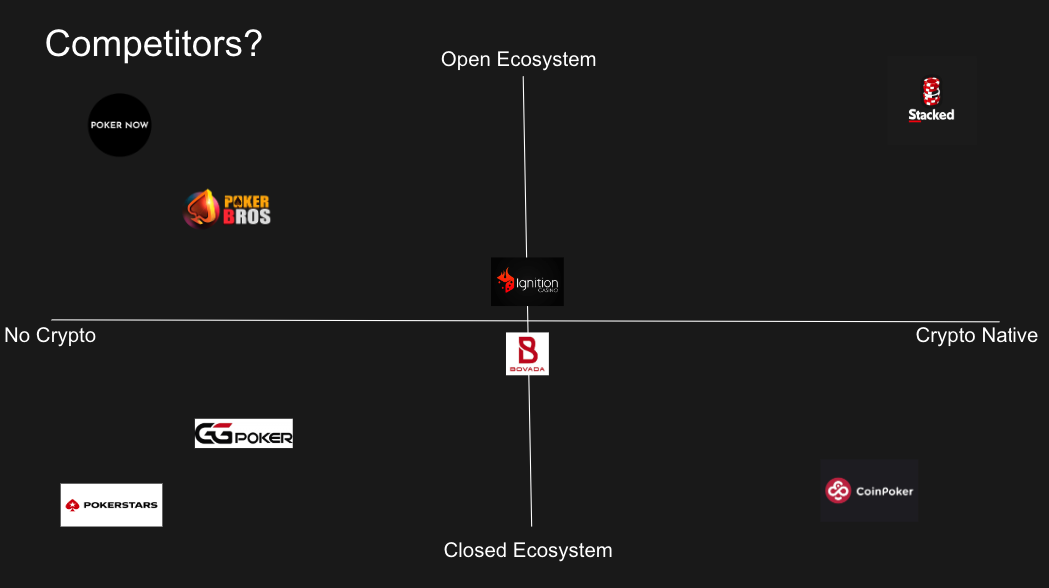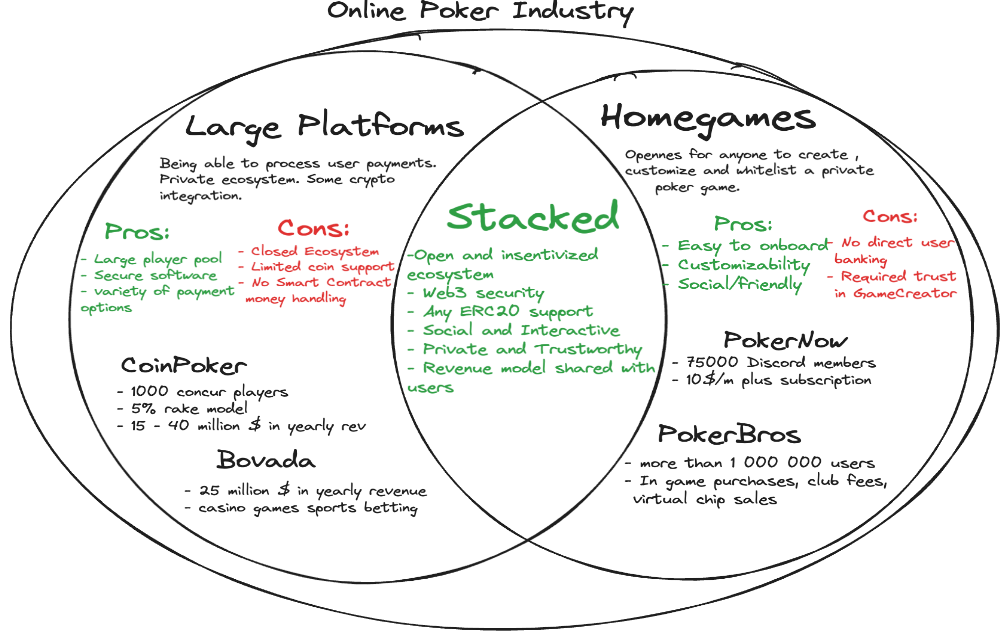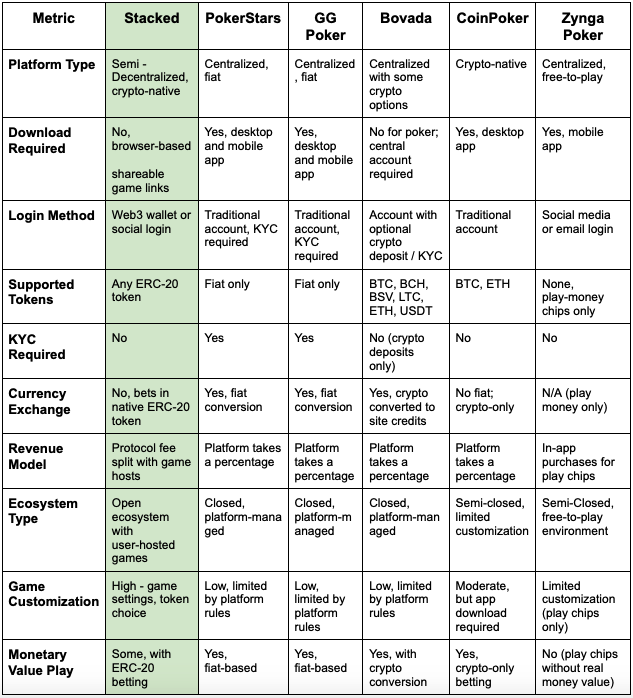Market Position and Competitors
4.1 Competitive Landscape
The online poker industry is split between traditional closed ecosystems and open platforms. Stacked's positioning reflects its focus on crypto enthusiasts looking for a trustless and open environment.

Closed Ecosystems: Traditional, Regulated Platforms
In closed ecosystems, platforms are typically controlled by large companies, offering secure, regulated experiences that often require player verification (KYC), regional restrictions, and fiat currency support. These platforms, like Pokerstars and GG Poker, cater to serious players and feature larger player pools. However, they operate with significant oversight, typically requiring users to download software, undergo KYC verification, and link a bank card to make deposits and withdrawals in supported fiat currencies.
While secure, these platforms limit participation and flexibility due to regulatory constraints and the requirement for centralized trust.
Open Ecosystems: Community-Centric, Play-Oriented Platforms
Open ecosystem platforms prioritize accessibility, often requiring no downloads or verification processes. These platforms aim to connect people purely for the enjoyment of poker, making it easy to play socially with friends or online communities without involving real money or KYC barriers. Examples include apps like Zynga Poker and PokerNow, which allow users to play easily with anyone around the world, often at no financial risk.
These platforms generate revenue through in-game cosmetic purchases but otherwise operate as free-to-play environments, catering to casual players who value the social aspect of poker.
Non-Crypto: Strict Monitoring, Control
For platforms that don’t accept cryptocurrency, large poker platforms like PokerStars and GG Poker only support traditional fiat deposit methods, including credit cards, bank transfers, and electronic wallets like Skrill and Neteller. These platforms often restrict access based on region and require players to undergo KYC verification to comply with local regulations. PokerStars, for instance, provides a range of deposit options tied to the player’s region but doesn’t support cryptocurrency deposits, focusing solely on fiat currency for deposits and withdrawals.
Crypto Friendly: Limited, Friction
Some platforms like Bovada/Ignition support crypto deposits in Bitcoin (BTC), Bitcoin SV (BSV), Bitcoin Cash (BCH), Ethereum (ETH), Litecoin (LTC), and USD Tether (USDT), converting these to platform credits for gameplay. Although crypto-friendly, they retain a centralized model, holding deposits as fiat-equivalent credits rather than crypto throughout.
CoinPoker, while entirely crypto-native with no fiat integration, requires users to download a desktop app and lacks direct Web3 wallet login. This setup aligns with decentralized principles but has fewer direct Web3 features.
4.2 Stacked’s Unique Proposition: The Best of Both Worlds
Stacked offers the best of both centralized and decentralized poker worlds with unmatched accessibility and customization. Players can easily create, share, and join poker games without the need for a desktop or mobile app download. Instead, each game generates a unique, shareable link, allowing users to jump in instantly with a Web3 wallet or social login. This seamless approach contrasts with traditional platforms like GG Poker or Bovada, which rely on centralized accounts, KYC, and restricted payment options.
As a truly crypto-native platform, Stacked supports any ERC-20 token, letting communities use tokens that matter to them while maintaining a secure, trustless environment. Stacked’s revenue-sharing model further incentivizes game creation by allowing users to earn from hosting, enabling a dynamic, community-driven ecosystem that prioritizes flexibility, security, and ease of access.

